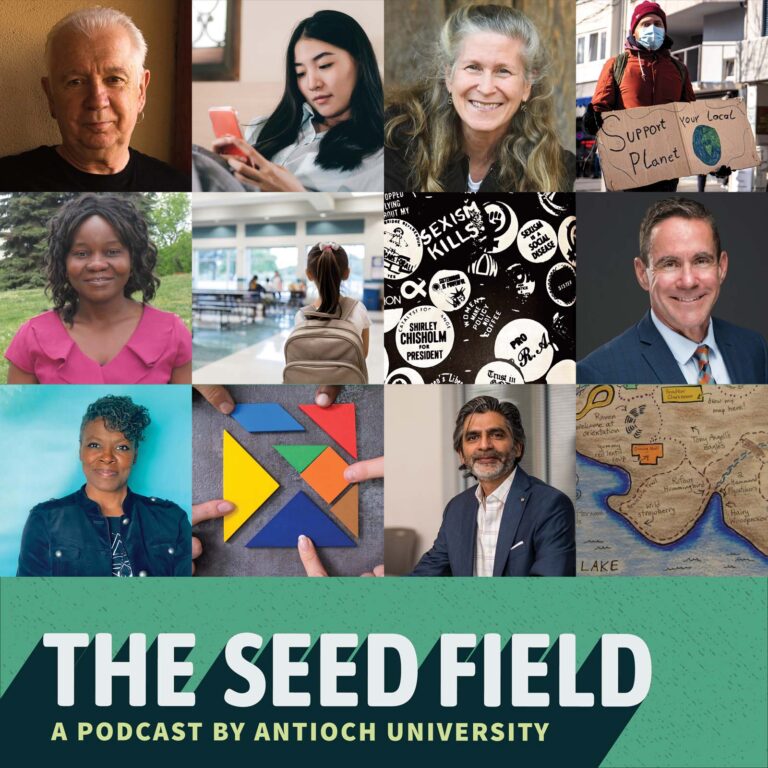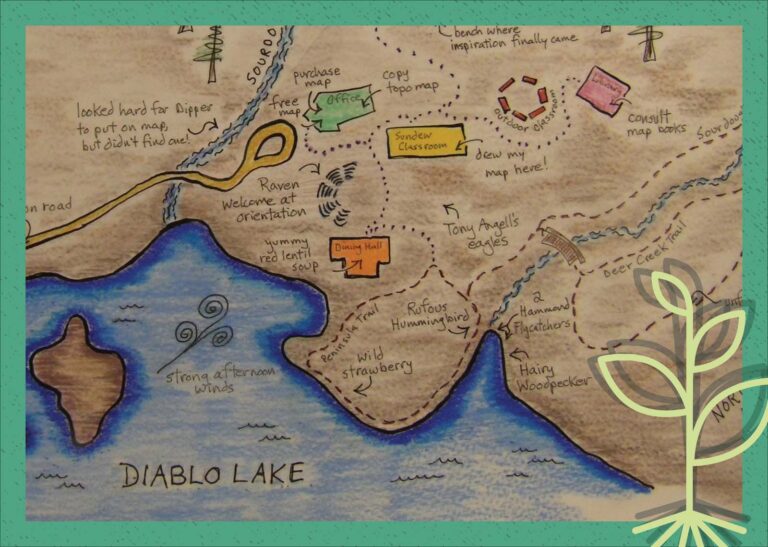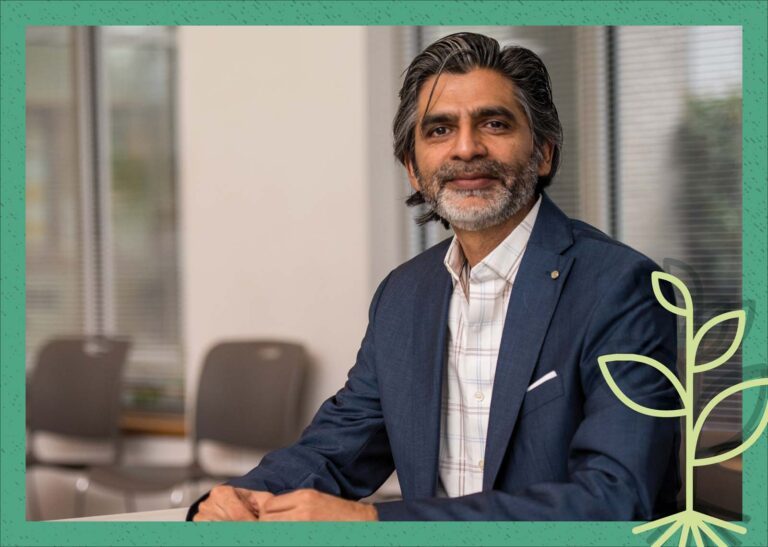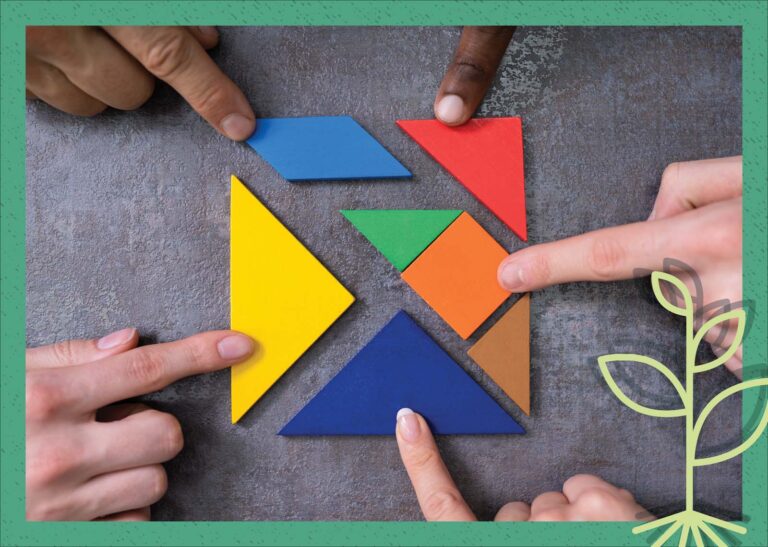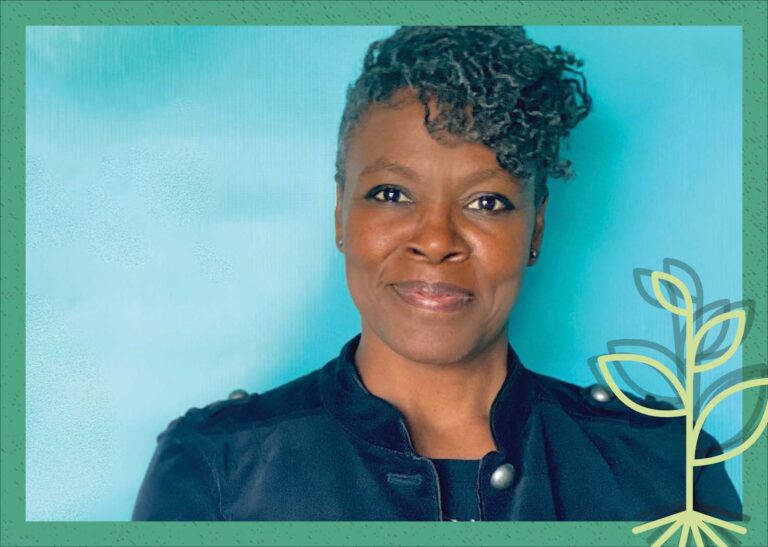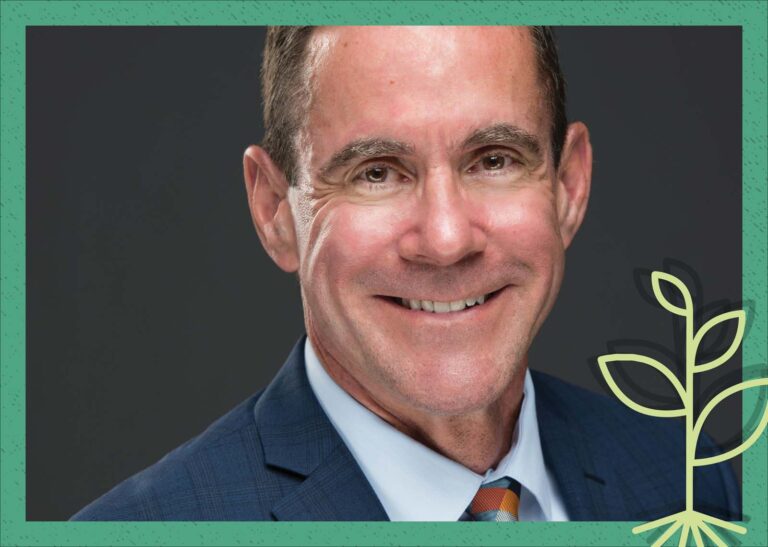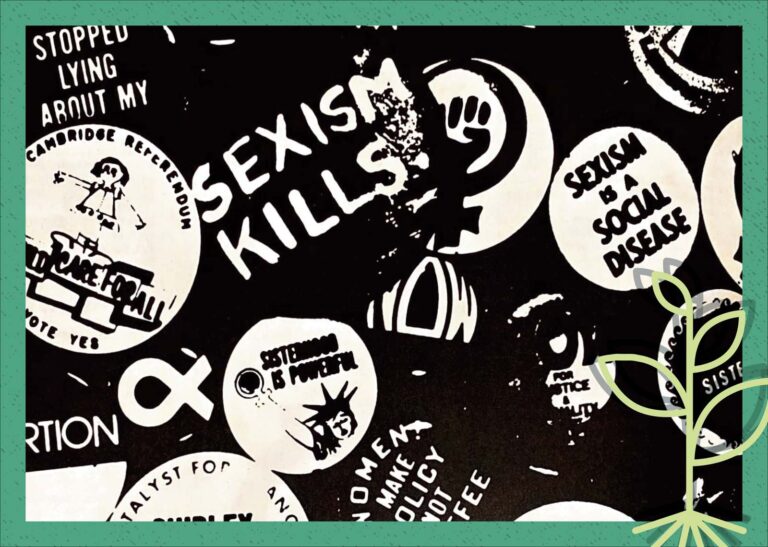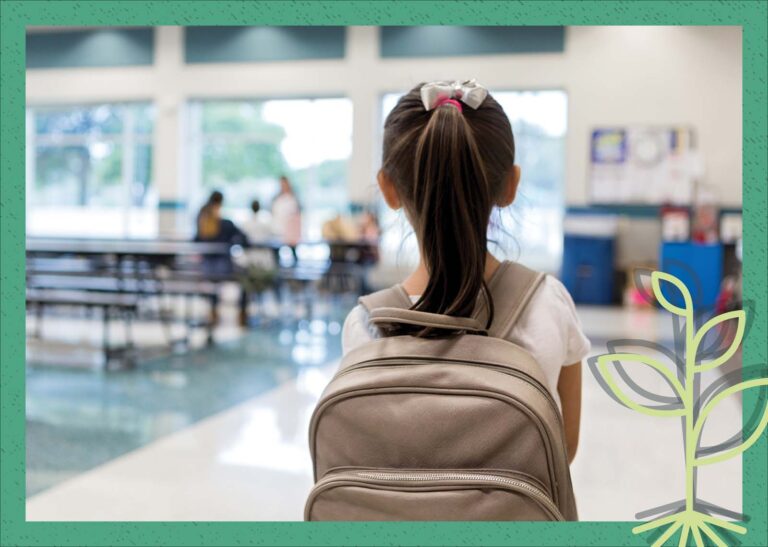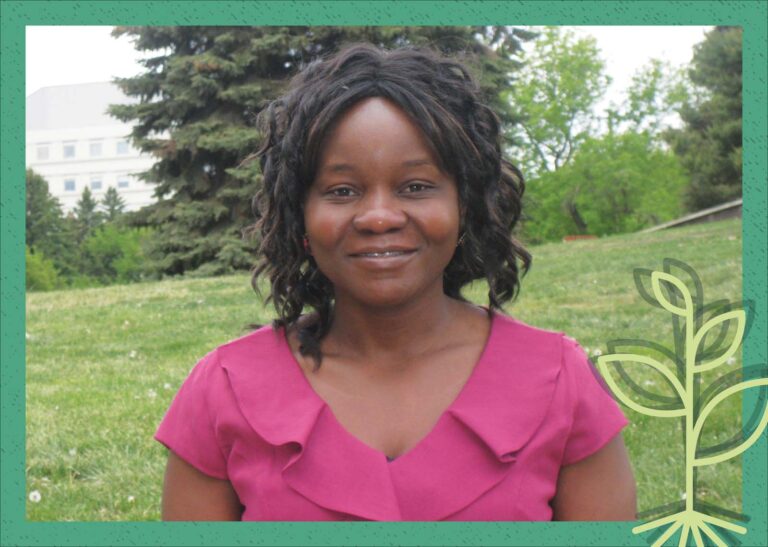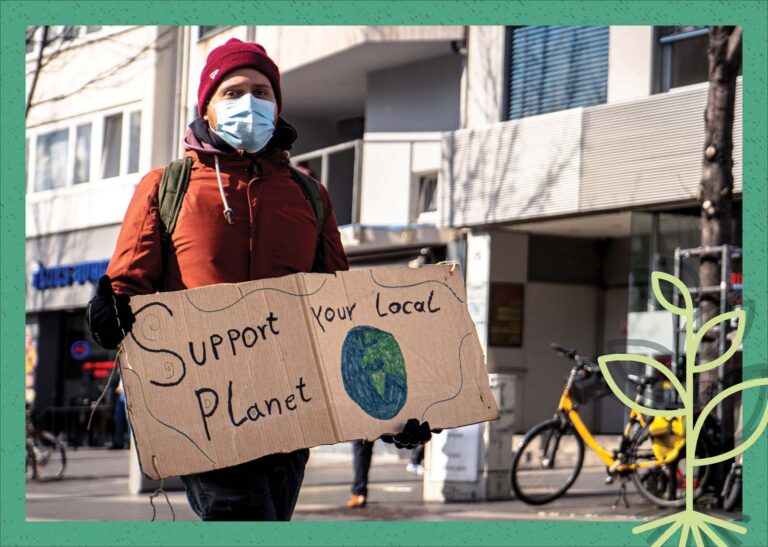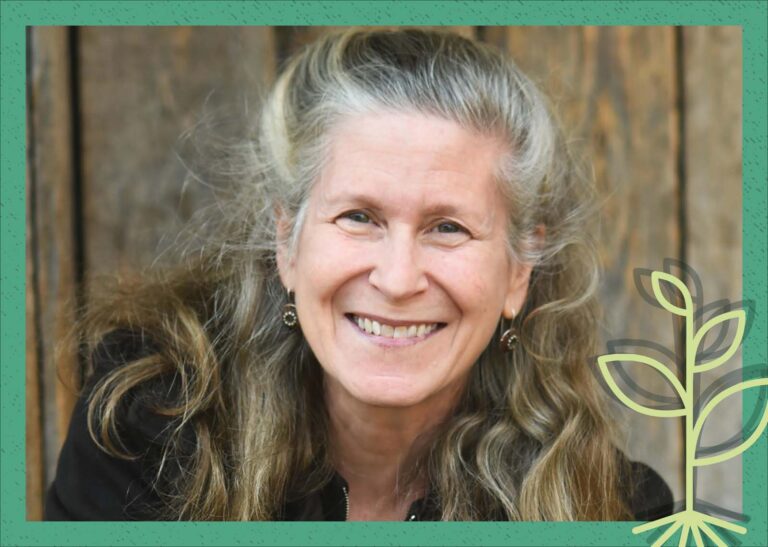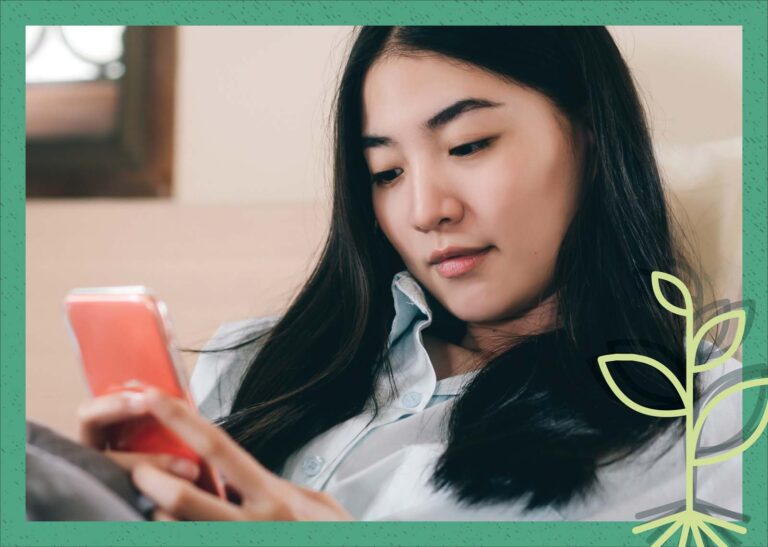With Season Two kicking off in just one week, the Seed Field Podcast team wanted to take a look back at some of the knowledge our guests shared in Season One. Over these twelve episodes, we had conversations with Antiochians representing all six of our campuses and across disciplines including education, mental health, environmental studies, leadership, and more. In this episode, host Jasper Nighthawk and producer Lauren Instenes play their favorite clips, ranging from advice for navigating mental health during a pandemic to how to decolonize our communities and workplaces. We hope you enjoy this trip down memory lane—and don’t forget to join us next week for the start of Season Two!
S1 E12: Reflect, Act, Repeat. How Cycles of Inquiry Help Us Challenge Dominant Narratives
Mapmaking? Birdwatching? Political activism? Dr. Sue Woehrlin sees in each of these activities the importance of narrative—and she teaches her students to see and master these narratives. Stories are the way we make sense of the world, so it’s important for us to understand the stories of our cultures, our communities, and ourselves. Dr. Woehrlin joins the Seed Field Podcast for the final episode of our first season to discuss ways of studying and questioning the stories around us. Through a fascinating conversation about maps, birds, and narrative, we explore ways that changemakers can take back control of the stories being told, reimagining the world, and work to make it more just.
S1 E11: A World in Crisis Calls for Conscious and Courageous Leadership
As the world faces many serious problems, from climate change to global health crises, we need leaders who serve humanity in a conscious and courageous way. This week’s guest host, Dr. Y. Falami Devoe, is joined by leadership scholar Dr. Aqeel Tirmizi to discuss what steps we can take as individuals and communities to train and develop the kinds of leadership we want to see in the world.
S1 E10: To Have Just Classrooms, We Must Decolonize and Reimagine Our Disciplines
For this episode we talk with two members of the Social Justice Pedagogy Committee in the Clinical Mental Health Counseling program, Cathy Lounsbury and Syntia Santos Dietz, about the insights they have gained from starting this process, why engaging in these kinds of dialogues is so important, and how others might undertake similar work.
S1 E9: How Affirmation Helps Queer Youth Thrive Despite Ongoing Discrimination
As Pride Month comes to an end, we discuss the continued need for LGBTQ+ activism, the challenges facing youth today, and ways to radicalize pride in the fight for social justice with Cynthia Ruffin, the director of COLORS LGBTQ Youth Counseling. As director of this free therapy service, Cynthia has great insight into how these young people continue to experience discrimination and trauma in our country, and she urges us to find new ways to show up for the LGBTQ+ community.
S1 E8: Why Antioch’s Chancellor Believes Universities Must Build and Protect Democracy
In this episode, Antioch’s Chancellor, William Groves, discusses the vital role he believes higher education plays in building and maintaining democracy through educating voters and taking thoughtful stands on social injustices.
S1 E7: To Challenge Dominant Narratives, Activist Memory Workers Reclaim History
Kirsten Grimstad discusses the importance of holding ourselves and our countries accountable for past harm – and of promoting reparations and healing in the present.
S1 E6: How We Can Support Children Through Hard Times By Being Better Listeners
In this episode, Dr. Gina Pasquale shares insights into what this year has been like for children all over the country, and provides some invaluable strategies for supporting not only children but all of the people we care about, as we face the next big transition – and the rest of our lives.
S1 E5: A Problem as Big as Climate Change Calls for Diverse Ways of Knowing
“We need to expand our understanding of the word environment,” says Dr. Jean Kayira, a scholar of sustainability and Indigenous Knowledge. “In my view, environment is really about interconnectedness and the interdependence of everything.” Jean directs Antioch’s PhD in Environmental Studies, and she is a leader in this interdisciplinary field that tries to deepen our understanding of the world – and to keep the world from changing it so much that it’s no longer hospitable. In this episode, Jean shares with us why multiple knowledge systems are better than just one, how dancing on mountaintops can be part of rigorous scholarly inquiry, her passion for the Malawian concept of umunthu, and the importance of planting seeds (sometimes literally) in your own community.
S1 E4: Why Environmental Justice Requires Education and a Focus on Equity
In this episode, Institute for Humane Education founder Zoe Weil talks with our co-hosts to dive into the history of humane education, how to move from being a problem solver to being a “solutionary,” and the impact she believes humane education could have on our country and world – especially as we emerge from a global pandemic.
S1 E3: To Create a World Where All Can Thrive, Education Must Change
In this episode, Institute for Humane Education founder Zoe Weil talks with our co-hosts to dive into the history of humane education, how to move from being a problem solver to being a “solutionary,” and the impact she believes humane education could have on our country and world – especially as we emerge from a global pandemic.
S1 E2: How Therapy is Evolving to Support Mental Health in Unprecedented Times
In this episode, recorded almost exactly a year after the COVID-19 pandemic forced lockdowns across the U.S., we have a deep conversation with two Antiochians working on the front lines…





